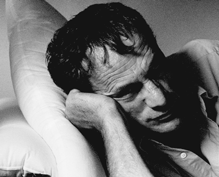“Private” sets the Israel-Palestine problem in one house with owner and occupier
A man’s home is his castle in some parts of the world, even if your neighbors don’t think much of the house. Saverio Costanzo reduces the entire Israeli-Palestinian conflict to a single home, situated between a rock and a hard place.
Mohammed (Mohammad Bakri) and his wife Samia (Areen Omari) and five kids live in an isolated house between an Israeli settlement and a Palestinian village. The fighting in the area prompts the Israeli Defense Forces to occupy the house, either with or without the presence of the family. Mohammed won’t leave, not wanting to be a refugee. But staying means a host of indignities also, like all of them sleeping in the same room, locked in by the soldiers, who also forbid them to go above the first level. And, none of their friends is allowed to visit.
A father’s word is generally law in the small fiefdom of a family here, but staying in these conditions causes fault lines. One son become inert, watches TV endlessly, and begs to go stay with a friend. The once-fiesty youngest girl, Sarah (Sarah Hamzeh), becomes vacant and scared when she gets locked out of the room one night. The oldest girl, Mariam (Hend Ayoub), cannot stop herself from go upstairs, in part because she is fascinated with one of the soldiers, while the eldest boy, Jamal (Marco Alsaying), a teen, finds his mind drifting to terrorism, even though his father wants to fight nonviolently. When the soldiers randomly take apart their makeshift greenhouse repeatedly, Mohammed insists that they will simply keep fixing it until the soldiers tire of the game.
The soldiers, officially representing Israel, act autonomously, and their leader becomes abusive toward Mohammed, humiliating him in front of his wife and children. But even the soldiers privately admit the whole thing is rather pointless and intrusive; they are just doing their jobs.
“Private” never leaves this family’s home, and uses hand-held cameras and point of view shots to give the film a reality-show feeling that makes the family’s plight more pressing. Using an average family and their home gets across the message that every person deserves basic dignities. Imagine soldiers occupying your home and having to ask permission to use the bathroom in the middle of the night. After seeing “Private,” you will.
When it seems easier to give up and leave, Mohammed tell his wife he won’t stop her. She fears the children are changing permanently, but he says if they leave, the kids will “hate themselves and hate the Israelis.” Living in world without easy answers, it’s interesting to see someone being given an easy out and refusing to take it, hoping for the eventuality of good prevailing.
gaycitynews.com
































